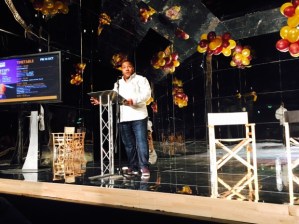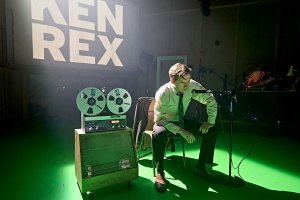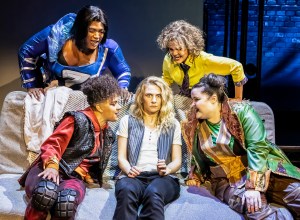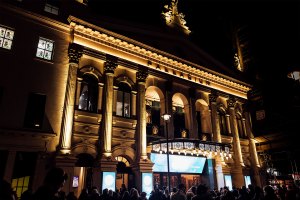'Sustainable change in diversity starts with decision makers, not with actors.'
Simeilia Hodge-Dallaway, the manager of Artistic Directors of the Future, on her work trying to bring about change
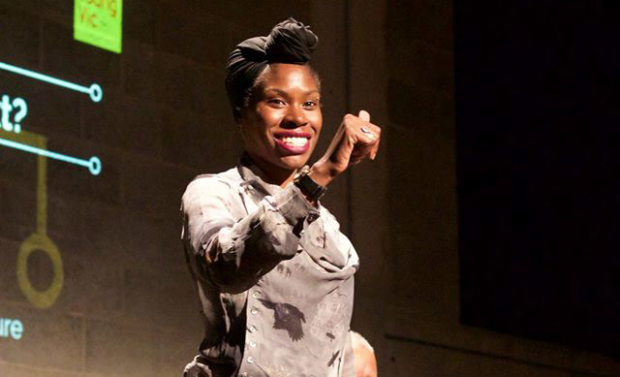
There has been a flurry of talk recently about diversity in theatre. Late last year Andrew Lloyd Webber released a report which condemned the industry as being ‘hideously white’ and said there is a severe shortage of BAME actors onstage. In December, the Print Room in west London found themselves at the centre of a furore, when a play by Howard Barker – apparently set in ancient China – had an all-white cast. More recently, there has been an ongoing conversation about the all-white casting of Half a Sixpence. The industry is, it seems, at least talking about the pressing issues of diversity.
Or is it?
You’ll notice that the above list primarily covers diversity in casts. But what about the casting directors? What about the people making decisions about what play gets put on, and who directs it? It is fair to say that there is much less talk over diversity in positions of power behind the scenes.
'ADF is looking at change that is going to have an impact for generations to come.'
Whether or not these discussions make the headlines, there is at least one organisation lobbying for change in the producer and director seats in the theatre industry as well as in those we see on our stages. Simeilia Hodge-Dallaway founded Artistic Directors of the Future in 2014 with the express intention of increasing the number of culturally diverse artistic leaders in the industry.
"The power is not with acting," says Hodge-Dallaway when I talk to her about the work she does with ADF. "Don’t get me wrong, I want organisations to be [looking at casting], but when we are looking at sustainable change, change that is going to have an impact for generations to come, it doesn’t start with actors. It starts with decision makers."
ADF was founded by Hodge-Dallaway in 2014, born from the frustration she felt after working in theatre buildings. Having first entered the industry as an actor, she then moved to directing and into arts management. "You would look around and you wouldn’t see anybody that was culturally diverse," she explains, "It really felt uncomfortable for me."
Hodge-Dallaway found that often she would be greeted by people who looked diverse in the bar area, or in the public sections of the theatre, but not behind the scenes. It was when she worked with director Kwame Kwei-Armah on the Black Play Archive at the National Theatre – an initiative which excavated lost or little-known plays by culturally diverse writers and created a catalogue of African, Caribbean and Black British plays produced in the UK – that she began to realise just how many writers and directors and artistic directors were not part of mainstream theatre. "What was it about them that meant they hadn’t managed to penetrate through?" she began to ask. "I wasn’t prepared to blame the generation before us. I think they worked really, really hard and they created pathways for us. But I really started to look at the industry that we worked in."
'I wasn’t prepared to blame the generation before us.'
ADF has a large pool of members working at different levels of the industry, from emerging talent to established voices and is open to anyone from the BAME community. Hodge-Dallaway holds training sessions for management teams, brokers relationships with artistic directors and venues, holds networking events and conferences and acts as a support for organisations trying to effect change. One of the big things she’s been working on recently is boards. She has facilitated board shadowing events – The Finborough, Old Vic and ArtsDepot have all signed up to this – and a lot of it, she says, is about ‘demystifying’ what a board member actually is. Often she sees the word diversity getting bandied around as a buzz word. Her work with ADF is fundamentally opposed to that. "It’s not just an overnight thing," she explains.
There’s a huge amount of work to be done and during our interview I ask whether tackling the issues is a Sisyphean task? Hodge-Dallaway smiles an upbeat, wide grin: "It is about power and control, we work in an industry which is based on nepotism," she says, "But people are waking up. It is an exciting time."
Part of what excites her in her recent work is a new project called Up Next. A partnership between Battersea Arts Centre and the Bush Theatre, Up Next will allow seven ADF members the chance to take over the artistic directorship of these theatres for one to two months next year.
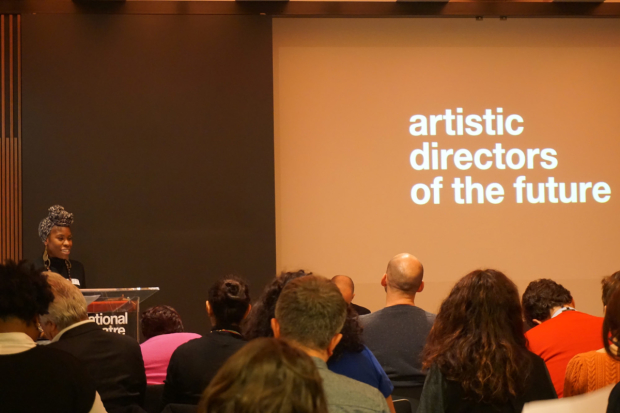
"I think David Jubb might go for a spa," she jokes when I ask what the current ADs are doing while Up Next is taking place. But really they will likely be busy too. Supported by the Arts Council (ADF itself isn’t funded by ACE), the initiative will give successful applicants hands on experience with realistic targets to meet.
ADF has always been driven by the force of Hodge-Dallaway's own passion for change. The seed of ADF originally came from a question she posed at a theatre conference, "I noticed everyone was comfortable talking about diversity and young people and training, but this idea of culturally diverse practitioners – leaders, essentially –seemed to make people uncomfortable." It was the response to their first event – an unprecedented number of people attended – that spurred her on. Two years down the line and she made it onto The Stage’s list of 100 powerful people in theatre – just in at number 98. Although that, for Hodge-Dallaway, was a bittersweet achievement.
'Artistic Directors of the Future leads by example. We want change upstairs in the offices. '
"Don’t get me wrong, it’s rewarding to be recognised for your work, especially when you know your work is to do with positive change in the industry. But when you look at that list, there were – what – seven culturally diverse people on there?" she says.
Hodge-Dallaway is hopeful about the future, however, and the recent collaborations with the Bush and Battersea Arts Centre, alongside upcoming talks with Theatre503, Sheffield Theatres, the Royal Exchange and more have excited her. One of her members, Sandra Thompson-Quartey made the Courtyard Theatre the home to Writers Avenue in January this year. It will be a base for diversity-led theatre.
She is acutely aware of a tokenistic instinct people have, of certain sectors wanting a "quick fix". Often, when people talk to her, it is a "box-ticking" exercise. But, she says, ADF "is clear about what we want. What we want is change upstairs in the offices. We can’t get side-tracked. We lead by example. Come and talk to us, put your resources into it, put time into it, make [diversity] a priority and we can make change together."
For more information on Up Next visit the ADF website. The deadline for Up Next applications is Monday 13 March at midday.




